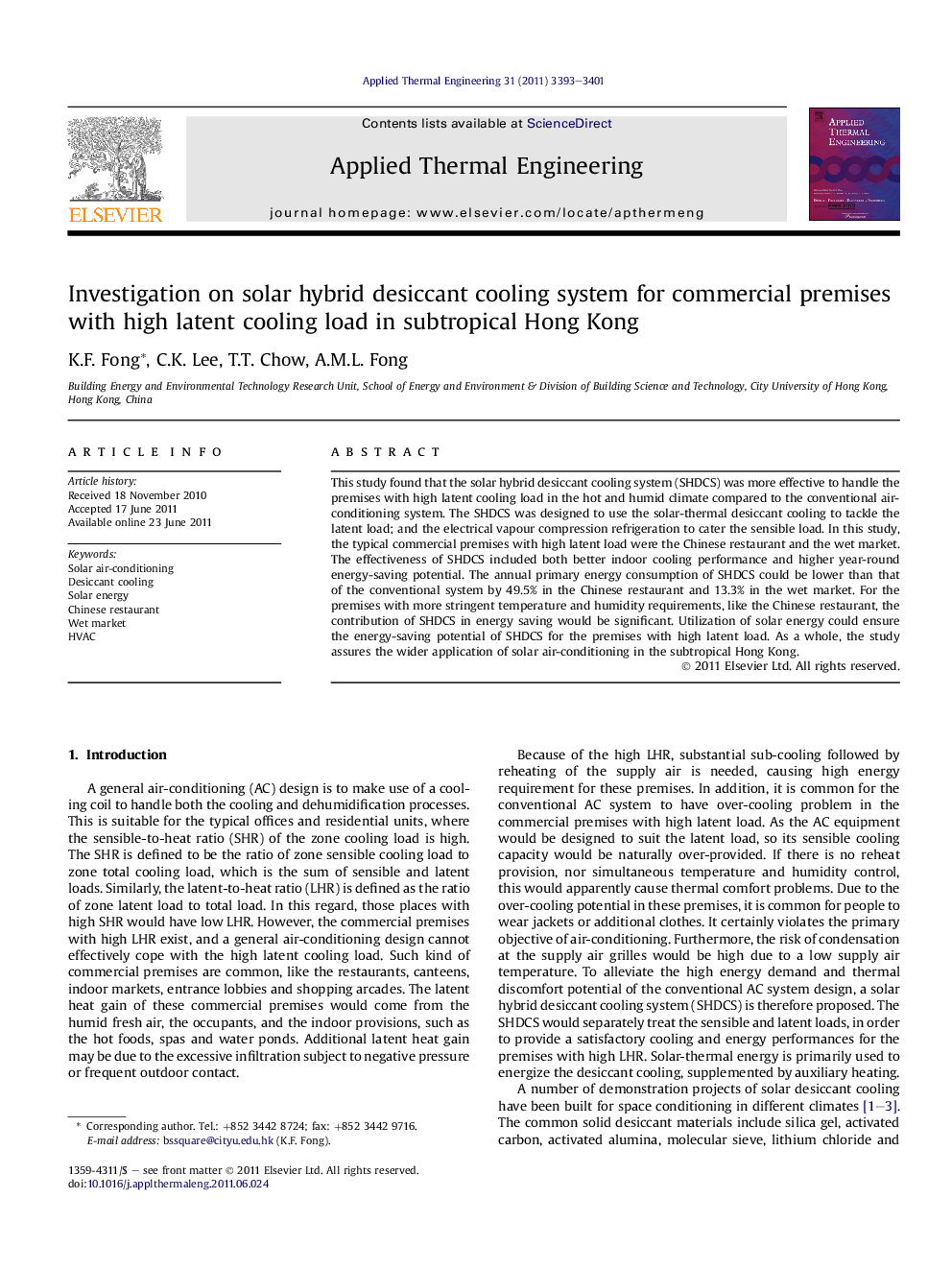| Article ID | Journal | Published Year | Pages | File Type |
|---|---|---|---|---|
| 647678 | Applied Thermal Engineering | 2011 | 9 Pages |
This study found that the solar hybrid desiccant cooling system (SHDCS) was more effective to handle the premises with high latent cooling load in the hot and humid climate compared to the conventional air-conditioning system. The SHDCS was designed to use the solar-thermal desiccant cooling to tackle the latent load; and the electrical vapour compression refrigeration to cater the sensible load. In this study, the typical commercial premises with high latent load were the Chinese restaurant and the wet market. The effectiveness of SHDCS included both better indoor cooling performance and higher year-round energy-saving potential. The annual primary energy consumption of SHDCS could be lower than that of the conventional system by 49.5% in the Chinese restaurant and 13.3% in the wet market. For the premises with more stringent temperature and humidity requirements, like the Chinese restaurant, the contribution of SHDCS in energy saving would be significant. Utilization of solar energy could ensure the energy-saving potential of SHDCS for the premises with high latent load. As a whole, the study assures the wider application of solar air-conditioning in the subtropical Hong Kong.
► Solar hybrid desiccant cooling system was more effective to handle high-latent-load premises. ► Solar-thermal desiccant cooling was used to tackle latent load. ► Electrical vapour compression refrigeration was adopted to cater sensible load. ► Annual primary energy consumption of SHDCS was lower than that of conventional system. ► Utilization of solar energy could ensure the energy-saving potential of SHDCS.
